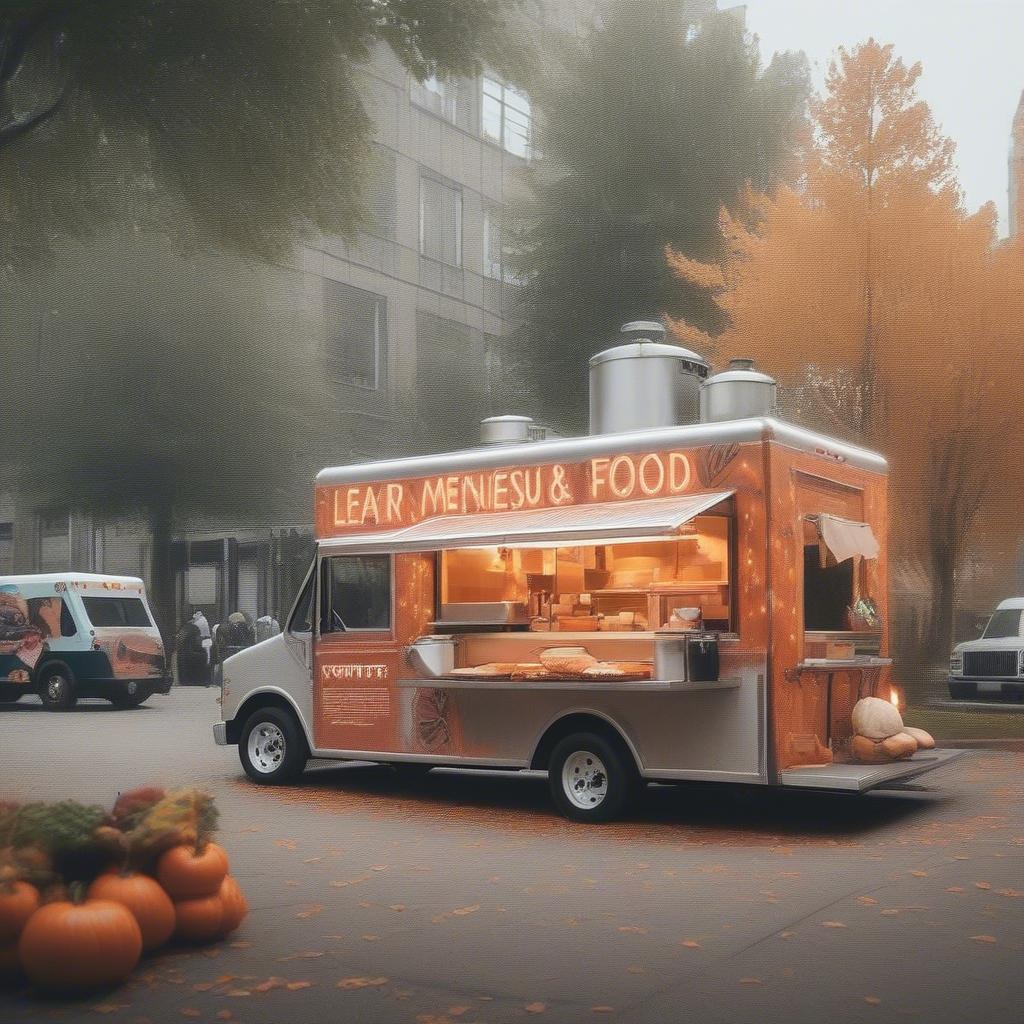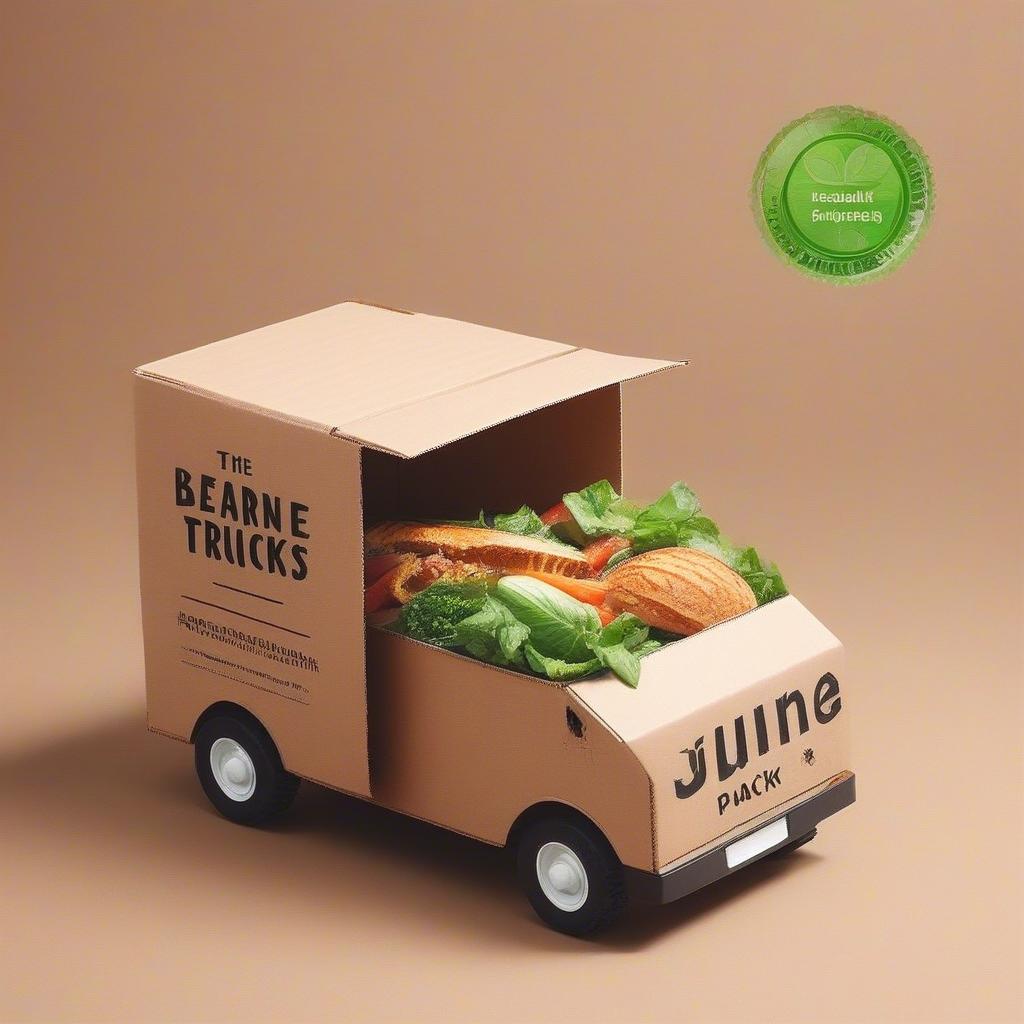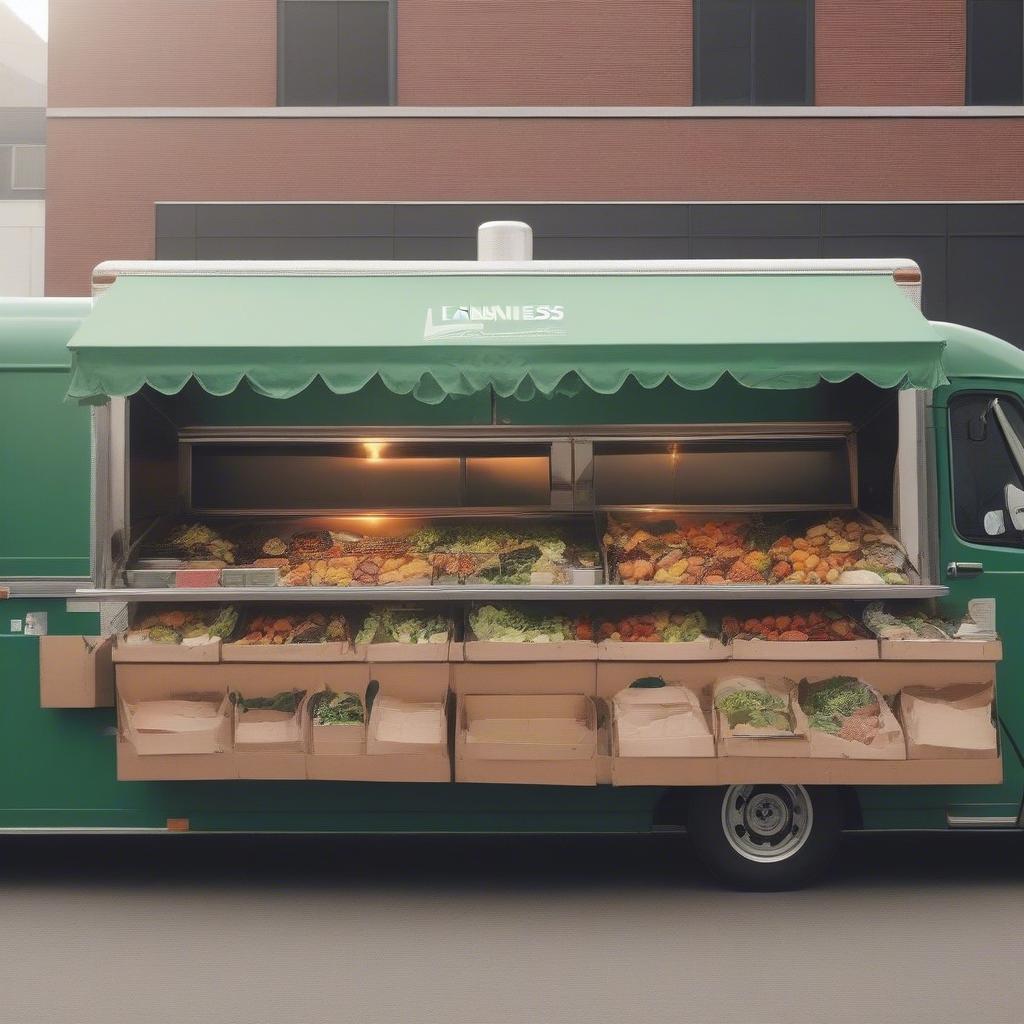
The Thrill of Seasonal Food Truck Events: Why Adaptation is Key
Seasonal food truck events are vibrant, bustling hubs of culinary creativity. They offer incredible opportunities to reach new customers, build brand loyalty, and boost your bottom line. But success at these events isn’t just about showing up; it’s about showing up smart. The key to thriving lies in adapting your menu to the specific season. Why? Because offering what’s fresh, flavorful, and in demand is what truly connects with event-goers.
Why Change Your Menu for Seasonal Events?
Imagine biting into a hearty chili on a scorching summer day. It just doesn’t fit, does it? That’s precisely why adapting your menu is crucial. It goes beyond just taste; it’s about meeting customer expectations, maximizing your sales potential, and showcasing your culinary talent. Here are several key reasons:
- Freshness and Flavor: Seasonal produce is at its peak flavor and often at its lowest price. This translates to tastier dishes and a more appealing menu for customers. Imagine the burst of a freshly-picked summer tomato in your sandwich or the warmth of a spiced pumpkin in a fall dessert. This kind of seasonal goodness elevates the entire eating experience.
- Meeting Customer Expectations: People expect seasonal flavors at seasonal events. They’re looking for foods that complement the weather and the overall ambiance. Failing to meet these expectations can result in missed opportunities and lower sales.
- Attracting New Customers: A unique, seasonal menu can draw the attention of foodies and event-goers who are always on the lookout for something new and exciting. It creates buzz and encourages people to try your food truck.
- Standing Out From the Crowd: In a sea of food trucks, a well-crafted seasonal menu helps you differentiate yourself. It shows that you’re not just serving the same old dishes but are invested in creating a unique and memorable experience for your customers.
- Reducing Food Costs: Sourcing seasonal ingredients can often be more cost-effective due to their abundance. This translates to better profit margins without compromising on quality.
- Improving Food Safety: Seasonal ingredients are often fresher and have a shorter time between harvest and consumption, reducing the risk of spoilage and foodborne illness.
The Emotional Connection of Seasonal Foods
Beyond the practical benefits, seasonal foods hold an emotional connection for many. Think of the comforting aroma of cinnamon and apples in the fall or the refreshing taste of citrus in the winter. These are flavors that evoke memories and feelings of nostalgia, adding a layer of depth to your menu and creating a more meaningful experience for your customers. By tapping into these emotional connections, you create a stronger bond with your customers and make your food truck a go-to destination at seasonal events.
Planning Your Seasonal Menu: The Strategic Approach
Adapting your menu for seasonal food truck events requires careful planning and a strategic approach. It’s not enough to just throw together a few seasonal ingredients; you need to understand what will work best for your brand, your target audience, and the specific event. This detailed approach to event preparation makes all the difference.
Step-by-Step Menu Planning Guide
Here’s a step-by-step guide to help you plan your seasonal menus effectively:
Step 1: Research the Season and Event:
- Understand the Season: Research the specific produce and flavors that are in season during the event. Consider the climate – will it be hot or cold? This will influence the types of dishes you offer.
- Analyze the Event: Research the type of event you are attending. Is it a music festival, a farmer’s market, a holiday celebration, or something else? Tailor your menu to the event’s vibe and target audience. What types of food trucks are usually successful?
- Check for Event Themes: Some events have specific themes that you should incorporate into your menu (e.g., a chili cook-off, a vegan festival).
Step 2: Evaluate Your Current Menu:
- Identify Popular Dishes: Analyze your current menu and identify the dishes that consistently perform well. Consider how you can adapt these dishes using seasonal ingredients.
- Identify Underperforming Dishes: Determine which dishes are less popular and consider removing or revising them for the seasonal event.
- Assess Your Capacity: Be realistic about your food truck’s capacity and the equipment you have. Don’t try to offer too many complicated dishes if you are short-staffed or your kitchen space is limited.
Step 3: Brainstorm Seasonal Menu Ideas:
- Consider Seasonal Produce: Brainstorm dishes using the freshest seasonal fruits and vegetables available. Create a list of potential menu items based on seasonality.
- Incorporate Regional Flavors: Think about incorporating regional flavors and cuisines that are popular during specific seasons.
- Offer Variety: Provide a mix of options to appeal to different tastes and dietary needs (e.g., vegan, vegetarian, gluten-free).
- Don’t Forget Beverages: Include seasonal beverages that complement your menu, such as homemade lemonade in the summer or hot apple cider in the fall.
Step 4: Test and Refine Your Menu:
- Conduct Test Runs: Before the event, test out your new menu items. Gather feedback from friends, family, or loyal customers.
- Adjust Based on Feedback: Refine your menu based on the feedback you receive. Make sure that the taste is just right and that it’s easy to prepare within your food truck.
- Cost Analysis: Calculate the cost of each dish and make sure that your pricing is profitable.
Step 5: Create a Visually Appealing Menu Board:
- Highlight Seasonal Items: Clearly label your seasonal dishes on your menu board. Use descriptive language to entice customers.
- Use High-Quality Photos: Consider adding high-quality photos of your seasonal dishes to your menu board. A picture is worth a thousand words, especially when it comes to food!
- Make it Easy to Read: Use a clear font and layout that is easy for customers to read, even from a distance.
Examples of Seasonal Menu Adaptations
Let’s look at some examples of how you can adapt your menu for each season:
Spring Menu Ideas
- Focus: Light, fresh, and vibrant flavors. Think green and colorful ingredients.
- Examples:
- Sandwiches/Wraps: Asparagus and goat cheese sandwiches, lemon-herb chicken wraps, pea and mint salad sandwiches.
- Salads: Strawberry spinach salad with poppy seed dressing, spring mix salad with edible flowers, cucumber and dill salad.
- Sides: Roasted baby carrots with honey glaze, grilled asparagus, fresh fruit salad with citrus dressing.
- Beverages: Freshly squeezed lemonade, iced green tea, sparkling water with berries and mint.
Summer Menu Ideas
- Focus: Refreshing, light, and flavorful. Focus on foods that are easy to eat on a hot day.
- Examples:
- Tacos/Bowls: Grilled corn and black bean tacos, shrimp ceviche bowls, watermelon and feta salad with a lime vinaigrette.
- Sandwiches: Tomato and mozzarella sandwiches with basil, BLT’s with ripe summer tomatoes, pulled pork sliders with a tangy coleslaw.
- Sides: Watermelon skewers, cucumber and yogurt salad, grilled corn on the cob with chili-lime butter.
- Beverages: Watermelon agua fresca, iced tea, limeade, fruity slushies.
Fall Menu Ideas
- Focus: Warm, comforting, and hearty flavors. Focus on foods that celebrate the harvest season.
- Examples:
- Soups/Chili: Butternut squash soup, creamy tomato soup, hearty beef chili, pumpkin chili.
- Sandwiches/Wraps: Apple and brie grilled cheese, turkey and cranberry wraps, roasted root vegetable wraps.
- Sides: Roasted sweet potatoes with cinnamon, apple slaw, cornbread with honey butter.
- Beverages: Hot apple cider, spiced chai tea, pumpkin spice latte.
Winter Menu Ideas
- Focus: Rich, warm, and comforting. Focus on foods that keep you warm on a cold day.
- Examples:
- Soups/Stew: Hearty beef stew, chicken and dumpling soup, lentil soup, creamy potato soup.
- Sandwiches: Grilled cheese with tomato soup, panini with roasted vegetables, pulled pork with barbecue sauce.
- Sides: Mashed sweet potatoes, mac and cheese, roasted root vegetables, loaded baked potatoes.
- Beverages: Hot chocolate, peppermint mocha, spiced tea, mulled wine.
Food Truck Tips for Success at Seasonal Events
Beyond menu adaptation, there are several other food truck tips to keep in mind for success at seasonal events:
Marketing and Promotion:
- Social Media Buzz: Use social media to promote your seasonal menu in the weeks leading up to the event. Post photos, videos, and stories showcasing your delicious dishes. Use relevant hashtags and engage with your followers.
- Event Listings: Make sure your food truck is listed on the event’s website and any other relevant online directories.
- Special Offers: Offer special deals or promotions for event-goers, such as discounts for early birds or bundle deals.
- Eye-catching Signage: Create eye-catching signs for your food truck that highlight your seasonal menu and attract customers.
- Loyalty Program: Consider offering a loyalty program to encourage repeat business at future events.
Operational Efficiency:
- Prepping in Advance: Pre-chop, pre-mix, and pre-portion as much as possible before the event to reduce prep time.
- Efficient Workflow: Plan your workflow carefully to minimize delays and ensure smooth service.
- Sufficient Supplies: Make sure you have enough supplies, including food, utensils, napkins, and beverages.
- Proper Equipment: Ensure your equipment is in good working order.
- Keep it Clean: Maintain a clean and organized food truck environment throughout the event.
- Payment Options: Offer various payment options (credit, debit, cash, mobile payment) to accommodate different customers.
- Staffing: Hire enough staff to handle the expected crowd.
- Waste Management: Have a plan for waste disposal.
Customer Experience:
- Friendly Service: Be friendly, approachable, and welcoming to all customers.
- Fast Service: Provide fast and efficient service.
- Address Concerns: Address customer concerns or complaints promptly and professionally.
- Gather Feedback: Ask customers for feedback on your seasonal menu and service. Use the feedback to improve for future events.
Learn Business Support: Simplifying Your Food Truck Journey
Running a food truck, especially one that changes with the seasons, can be complex. That’s where Learn Business comes in. We’re dedicated to supporting businesses like yours with tailored guidance and resources. We understand the unique challenges of the food truck industry and provide actionable solutions to help you thrive.
How Learn Business Helps Food Trucks:
- Template Library: Learn Business offers a vast library of customizable templates to streamline your operations, marketing, and planning. Our templates are specifically tailored to food trucks and include:
- Menu Templates: Create professional-looking menus, including seasonal menu boards, with our easy-to-use menu templates.
- Event Planning Templates: Simplify event preparation with our event checklist, vendor contracts, and planning tools.
- Budgeting Templates: Manage your finances effectively with detailed budget templates.
- Marketing Templates: Create stunning social media posts, flyers, and promotional materials with our customizable design templates.
- Expert Guides: Access detailed step-by-step guides and expert advice on various aspects of your food truck, including menu planning, inventory management, marketing, and more.
- Business Planning Tools: Use our business plan templates to define your goals, strategy, and projections.
- One-on-One Support: Our team of experts is ready to assist you with personalized guidance and support tailored to your specific needs and challenges.
- Community: Join our supportive community of food truck owners to share experiences, tips, and resources.
Why Choose Learn Business for Your Food Truck?
- Tailored Resources: Our resources are designed specifically for food trucks, not generic small businesses.
- Practical Solutions: We offer actionable solutions, templates, and guides, focusing on what works in the real world.
- Time Savings: Our pre-made templates save you time and effort so you can focus on running your business.
- Improved Efficiency: Our resources and guides help you improve your operations and achieve better results.
- Affordable: We provide high-quality resources at affordable prices.
By leveraging the power of Learn Business, you can streamline your menu planning process, boost your marketing efforts, and ensure a smooth and successful experience at every seasonal food truck event. We are here to support you on your journey from the idea stage to success. Start today and experience the difference.
The Art of Seasonal Menu Adaption: A Continuous Journey
Adapting your menu for seasonal food truck events is not a one-time task; it’s a continuous journey. By understanding the importance of seasonality, adopting a strategic approach to menu planning, and using practical tips for success, you can create a thriving food truck business that captivates customers year-round. Remember to embrace the challenge of seasonal change, use it to your advantage, and always strive to provide unique, memorable culinary experiences. Remember to leverage food truck tips and keep your focus on event preparation for each event.



Leave a Reply